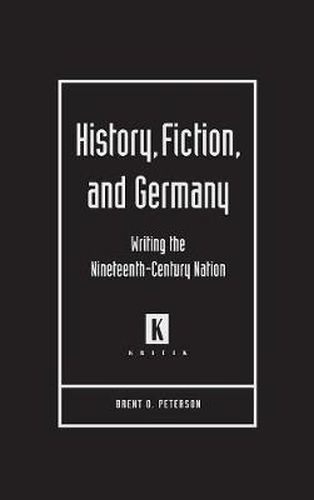Readings Newsletter
Become a Readings Member to make your shopping experience even easier.
Sign in or sign up for free!
You’re not far away from qualifying for FREE standard shipping within Australia
You’ve qualified for FREE standard shipping within Australia
The cart is loading…






This title is printed to order. This book may have been self-published. If so, we cannot guarantee the quality of the content. In the main most books will have gone through the editing process however some may not. We therefore suggest that you be aware of this before ordering this book. If in doubt check either the author or publisher’s details as we are unable to accept any returns unless they are faulty. Please contact us if you have any questions.
The German-speaking inhabitants of central Europe did not automatically think of themselves as
Germans
- not before 1871 and not always after unification. In fact, they spoke mutually incomprehensible dialects, owed allegiance to different leaders, worshiped in different churches, and would not have recognized each other’s customs. If asked about their identity, these prospective Germans might have answered Austrian, Bavarian, or Prussian, and they could as easily have used more local labels or resorted to occupational markers. For this disparate population to think of itself as
German,
that word had to acquire content - people had to learn a whole set of stories they could tell themselves and others in answer to the question of identity. History, Fiction, and Germany chronicles how German nationalism developed simultaneously with the historical novel and the field of history, both at universities and in middlebrow reading material. The book examines Germany’s emerging national narrative as nineteenth-century writers adapted it to their own visions and to changing circumstances. These writers found and popularized the nation’s heroes and heroines, demonized its villains and enemies, and projected the nation’s hopes and dreams for the future. Author Brent O. Peterson argues that it was the production and consumption of national history - the writing and reading of the nation - that filled Germany with Germans. Although the task of national narration was never complete and never produced a single, universally accepted version of German national identity, tales from Germans’ gradually shared history did more to create Germany than any statesman, general, or philosopher. History, Fiction, and Germany provides a valuable resource for scholars and students of German studies, as well as anyone interested in history and the articulation of national identity.
$9.00 standard shipping within Australia
FREE standard shipping within Australia for orders over $100.00
Express & International shipping calculated at checkout
This title is printed to order. This book may have been self-published. If so, we cannot guarantee the quality of the content. In the main most books will have gone through the editing process however some may not. We therefore suggest that you be aware of this before ordering this book. If in doubt check either the author or publisher’s details as we are unable to accept any returns unless they are faulty. Please contact us if you have any questions.
The German-speaking inhabitants of central Europe did not automatically think of themselves as
Germans
- not before 1871 and not always after unification. In fact, they spoke mutually incomprehensible dialects, owed allegiance to different leaders, worshiped in different churches, and would not have recognized each other’s customs. If asked about their identity, these prospective Germans might have answered Austrian, Bavarian, or Prussian, and they could as easily have used more local labels or resorted to occupational markers. For this disparate population to think of itself as
German,
that word had to acquire content - people had to learn a whole set of stories they could tell themselves and others in answer to the question of identity. History, Fiction, and Germany chronicles how German nationalism developed simultaneously with the historical novel and the field of history, both at universities and in middlebrow reading material. The book examines Germany’s emerging national narrative as nineteenth-century writers adapted it to their own visions and to changing circumstances. These writers found and popularized the nation’s heroes and heroines, demonized its villains and enemies, and projected the nation’s hopes and dreams for the future. Author Brent O. Peterson argues that it was the production and consumption of national history - the writing and reading of the nation - that filled Germany with Germans. Although the task of national narration was never complete and never produced a single, universally accepted version of German national identity, tales from Germans’ gradually shared history did more to create Germany than any statesman, general, or philosopher. History, Fiction, and Germany provides a valuable resource for scholars and students of German studies, as well as anyone interested in history and the articulation of national identity.